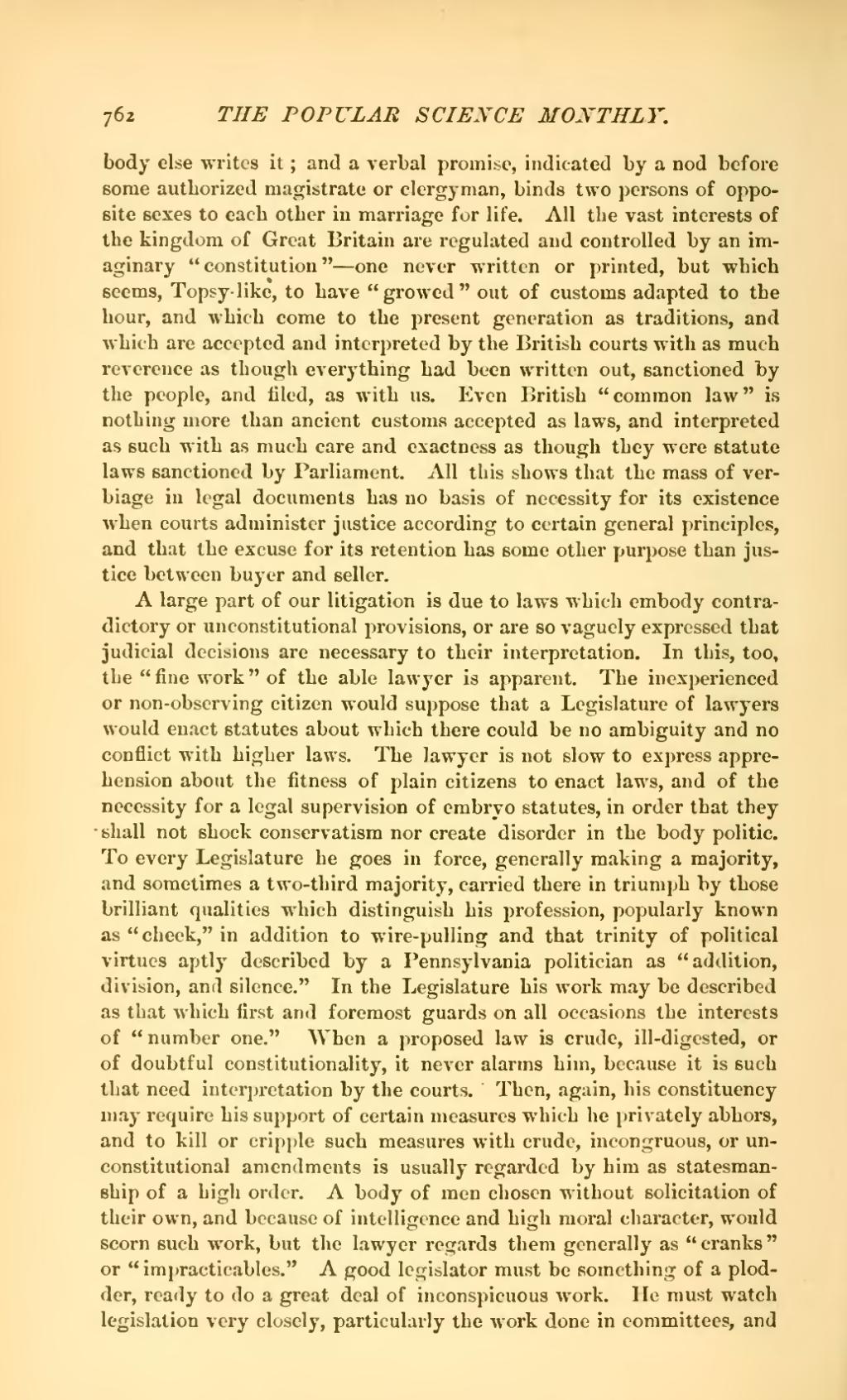body else writes it; and a verbal promise, indicated by a nod before some authorized magistrate or clergyman, binds two persons of opposite sexes to each other in marriage for life. All the vast interests of the kingdom of Great Britain are regulated and controlled by an imaginary "constitution"—one never written or printed, but which seems, Topsy-like, to have "growed" out of customs adapted to the hour, and which come to the present generation as traditions, and which are accepted and interpreted by the British courts with as much reverence as though everything had been written out, sanctioned by the people, and filed, as with us. Even British "common law" is nothing more than ancient customs accepted as laws, and interpreted as such with as much care and exactness as though they were statute laws sanctioned by Parliament. All this shows that the mass of verbiage in legal documents has no basis of necessity for its existence when courts administer justice according to certain general principles, and that the excuse for its retention has some other purpose than justice between buyer and seller.
A large part of our litigation is due to laws which embody contradictory or unconstitutional provisions, or are so vaguely expressed that judicial decisions are necessary to their interpretation. In this, too, the "fine work" of the able lawyer is apparent. The inexperienced or non-observing citizen would suppose that a Legislature of lawyers would enact statutes about which there could be no ambiguity and no conflict with higher laws. The lawyer is not slow to express apprehension about the fitness of plain citizens to enact laws, and of the necessity for a legal supervision of embryo statutes, in order that they shall not shock conservatism nor create disorder in the body politic. To every Legislature he goes in force, generally making a majority, and sometimes a two-third majority, carried there in triumph by those brilliant qualities which distinguish his profession, popularly known as "cheek," in addition to wire-pulling and that trinity of political virtues aptly described by a Pennsylvania politician as "addition, division, and silence." In the Legislature his work may be described as that which first and foremost guards on all occasions the interests of "number one." When a proposed law is crude, ill-digested, or of doubtful constitutionality, it never alarms him, because it is such that need interpretation by the courts. Then, again, his constituency may require his support of certain measures which he privately abhors, and to kill or cripple such measures with crude, incongruous, or unconstitutional amendments is usually regarded by him as statesmanship of a high order. A body of men chosen without solicitation of their own, and because of intelligence and high moral character, would scorn such work, but the lawyer regards them generally as "cranks" or "impracticables." A good legislator must be something of a plodder, ready to do a great deal of inconspicuous work. He must watch legislation very closely, particularly the work done in committees, and

